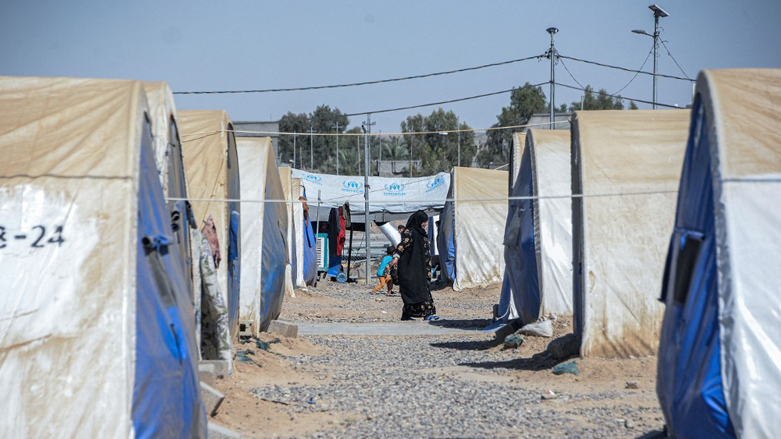Iraq’s migration ministry deals with refugees, IDPs ‘very irresponsibly’ in Kurdistan, says KRG minister

ERBIL (Kurdistan 24) – The Iraqi Ministry of Migration and Displacement deals with refugees and internally displaced persons (IDPs) in a very irresponsible manner in the Kurdistan Region, the Kurdish region’s minister of interior said on Thursday.
The remarks by Kurdistan Regional Government (KRG) Minister of Interior, Rebar Ahmed, came during the inauguration of a new refugee registration and protection center, financially supported by Kuwait Fund for Arab Economic Development (KFAED), in collaboration with UNHCR and the regional government.
Despite Iraq’s “enormous budget,” it has not fulfilled its duties with regard to refugees and IDPs, Ahmed said at the event. The UNHCR in Iraq representative and other senior Kurdish officials attended the event.
He reiterated the KRG’s support for a voluntary return of all the displaced population, nearly one million IDPs and refugees in the Kurdistan Region, and commitment not to close down any camps as long as there are vulnerable people who need protection.
The Iraqi minister of migration and displacement has recently accused the KRG of using the refugees and IDPs for political purposes, a charge the region’s official vehemently denies.
The Kurdistan Region hosted nearly 2.5 million Syrian refugees and Iraqi IDPs following the 2011 civil war and the rise of ISIS four years later.
The Kurdish government supports 70% of all the necessary costs of hosting the population, according to the KRG.
Minister Ahmed reiterated the call for the implementation of the Sinjar Agreement, struck between Erbil and Baghdad in September 2020, to normalize the state of affairs in the Yezidi-majority town through the removal of outlawed groups and militias, and handing over the security and protection of the town to a local Yezidi police force.
“Baghdad has taken no practical step to implement the agreement,” Minister Ahmed said, adding instead of the ouster of militias and the Kurdistan Workers’ Party (PKK), the Iraqi government has deployed reinforcements.
Located in Erbil’s Bahrka subdistrict, the new center will provide a one-stop shop for refugees to obtain services and assistance, including psychosocial support.
The KRG has donated land at no cost to the project, which could be turned into a secondary school after services to refugees are no longer needed.
“Today’s opening of the registration center is a testament to the great cooperation between the KRG and its partners. We are grateful for the financial support of KFAED as partners in protecting refugees,” UNHCR Representative in Iraq Jean-Nicolas Beuze said in a press release.
Additional reporting by Kurdistan 24 Reporter Renas A. Saeed
